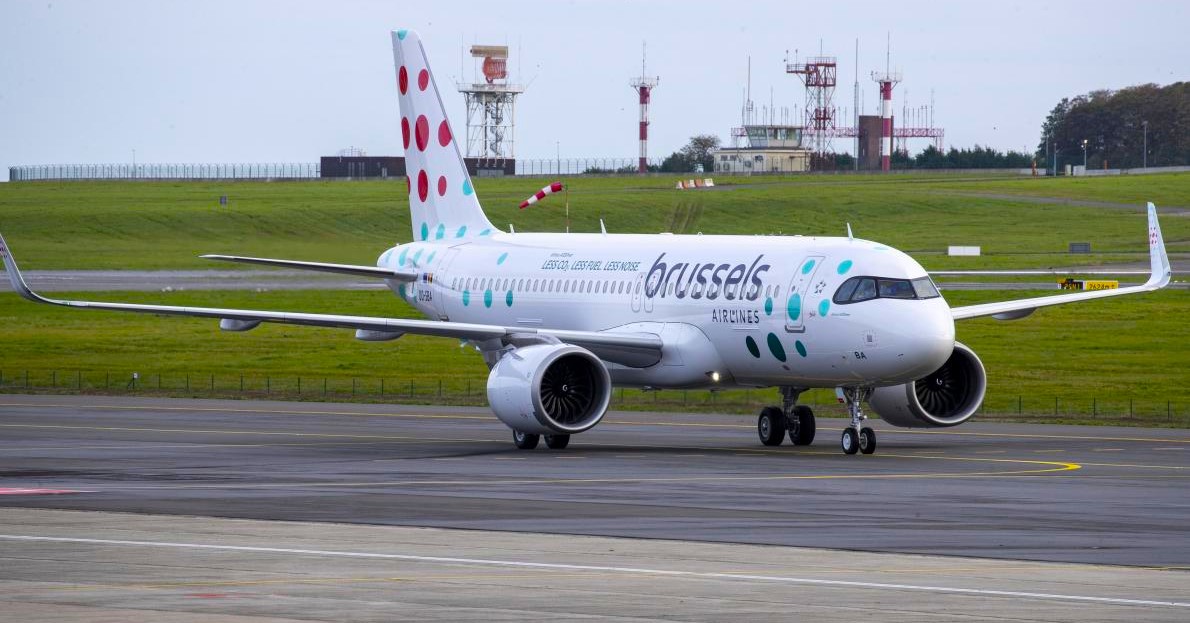


It will be passed onto the passengers ! Brussels Airlines will have part of the costs due to European environmental requirements covered in a separate supplement, an exercise in strategic transparency.
The German airline group Lufthansa is introducing a “ surcharge for environmental costs ”. This decision will apply to all its subsidiaries, including Brussels Airlines , for all flights departing from Europe. The surcharge will range from 1 to 72 euros per flight, depending on the route and class of travel.
The press release read,
The Environmental Cost Surcharge applies to all flights sold and operated by the Lufthansa Group departing from the 27 EU countries as well as the UK, Norway and Switzerland.
The Environmental Cost Surcharge will be levied on all tickets issued from June 26, 2024 and applies to departures from January 1, 2025.
The Lufthansa Group aims to be CO2 - neutral by 2050 and aims to halve its net emissions by 2030 compared to 2019. To achieve this, Lufthansa is focusing on the accelerated modernization of its fleet and the use of sustainable aviation fuels, as this is the only way to rapidly reduce CO2 emissions from aircraft in flight.
Brussels Airlines, a Belgian airline and subsidiary of the German group, will apply a surcharge ranging from 1 to 36 euros.
The supplement will apply to all tickets issued from this Wednesday, June 26 with departure from January 1 , for all flights sold and operated by the German group departing from the 27 countries of the European Union ( EU) as well as the United Kingdom, Norway and Switzerland.
Interestingly, this tax will only apply to flights departing from Europe. At Brussels Airlines, we are told that short and medium-haul flights will be subject to a tax of 1 to 7 euros. In other words, when the destination is in Europe, you will have to pay this "tax" on the outward and return journeys.
The rates of the climate charges depend on the distance to be flown: the further the flight, the higher the surcharge. Business and first class travelers will also pay a higher levy than economy travelers.
According to Brussels Airlines spokesperson Nico Cardone, the charge for an average European flight in economy class will amount to '1 to 5 euros' per single journey. A maximum of 36 euros extra will have to be paid on Brussels Airlines' own long-distance flights.
You may like to read....
Long-haul Brussels Airlines flights will be subject to a tax ranging from 6 to 36 euros. Joëlle Neeb, spokesperson for Brussels Airlines, explains:
“The difference between the maximum price of this tax at Brussels Airlines and Lufthansa comes from the fact that we do not offer first class on our flights .”
The surcharge is intended to cover part of the ever-increasing additional costs due to environmental regulatory requirements, Lufthansa explains.
Among these requirements is the statutory blending quota of 2% for sustainable aviation fuel, for departures from European Union countries from January 1, 2025.
Also included are adjustments to the EU's emissions trading system, and other national and international requirements, such as the carbon offsetting and reduction system for international aviation , the German group lists.
"This will raise awareness of the costs that are asked of us so that people understand that it is not about filling our pockets," believes Joëlle Neeb.
Related story........
